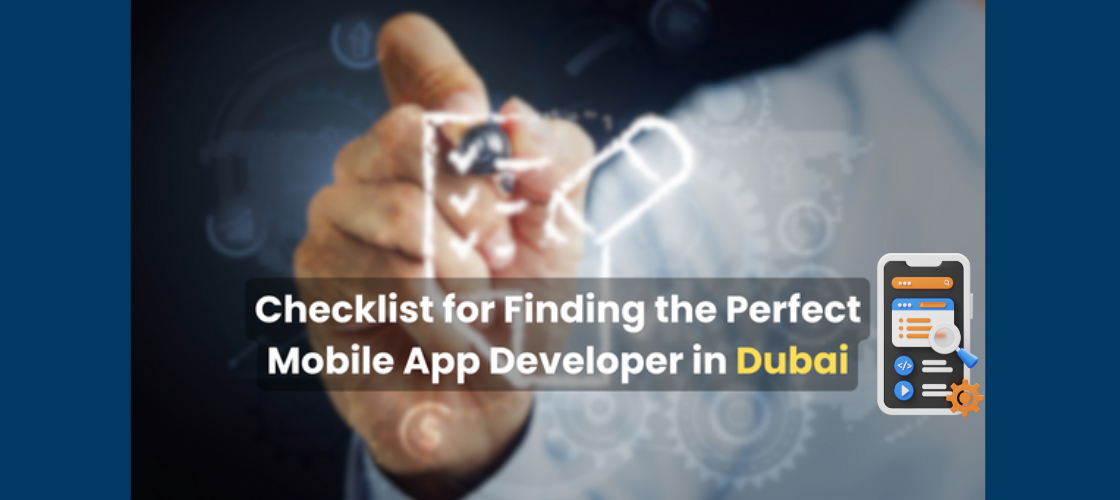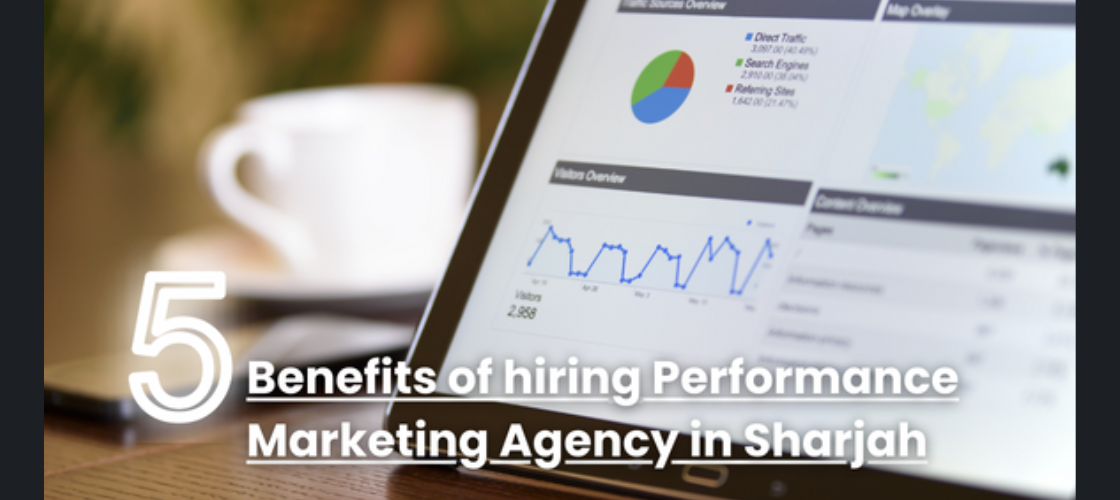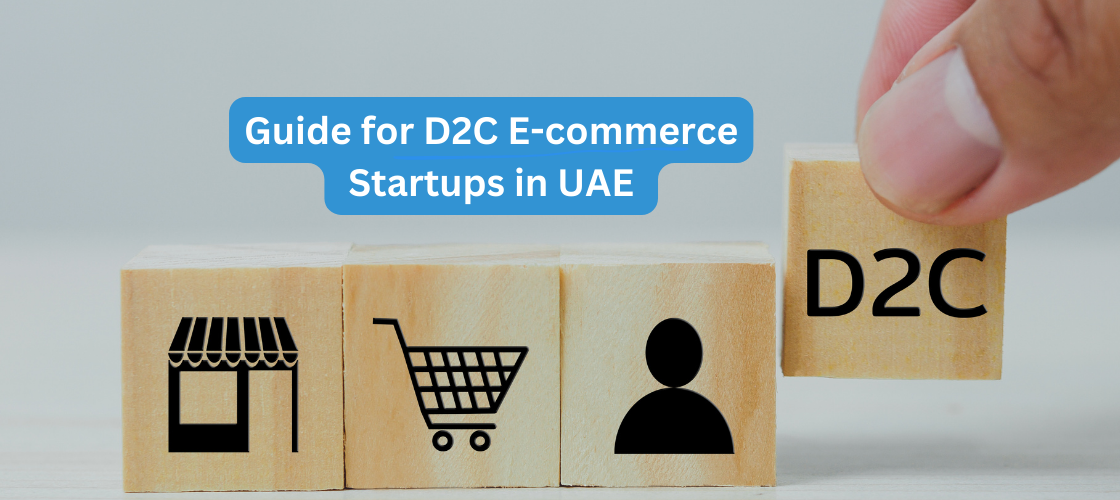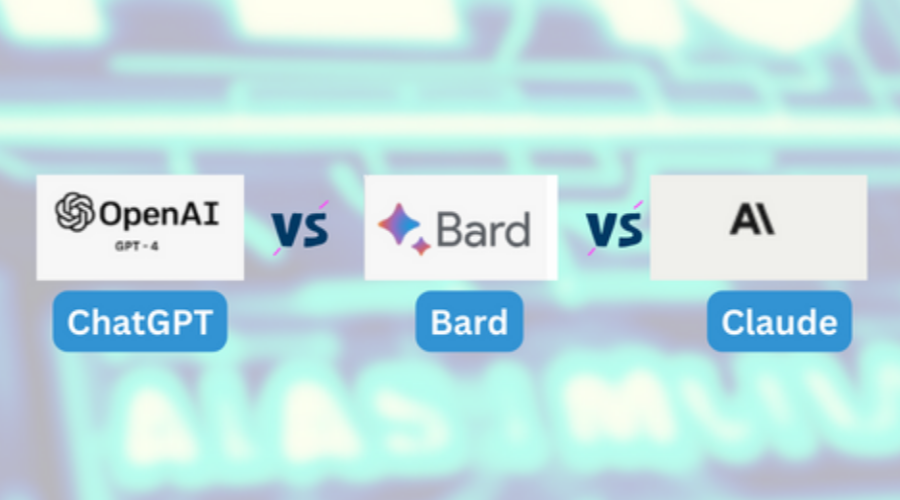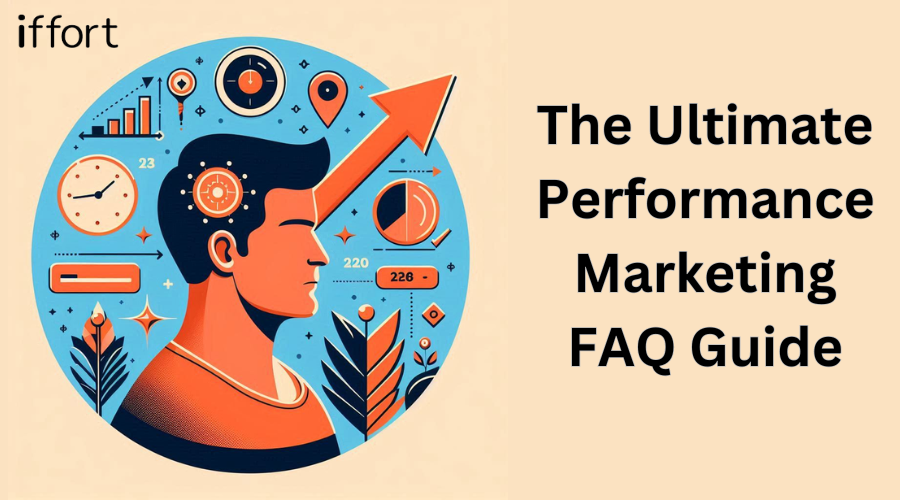- Blog
- Comprehensive Guide (with budget) about Dubai’s best Performance Marketing Agency
- Articles , UAE Articles ,
- July 14, 2023
In today’s ever-changing digital world, it’s essential for businesses to have strong marketing strategies to stay ahead of the competition and dominate online. Performance marketing is one of the most popular marketing strategies out there.
It’s different from traditional marketing because it focuses on specific actions and results, so businesses can get measurable results and get the most out of their investment.
In this guide, we’ll cover everything you need to know about performance marketing, from how to choose the right agency to how to create a comprehensive strategy, budget, track performance metrics, and use different marketing channels. We’ll also look at how to measure campaign performance and how to work with the agency to get the best results.
At the end of it all, you’ll have a better understanding of what performance marketing is and how to use it to your advantage.
Principles of performance marketing
In simple terms, performance marketing is a strategy that focuses on driving specific actions and outcomes, such as clicks, conversions, leads, or sales. Unlike traditional marketing, where businesses pay upfront for advertising space without a guaranteed outcome, performance marketing takes a results-oriented approach. Advertisers only pay when desired actions directly linked to their business objectives, are achieved.
What are the key principles behind performance marketing? Let’s dive in:
Actionable metrics: Performance marketing uses measurable KPIs (Key Performance Indicators) to measure the effectiveness of your marketing efforts. These KPIs can vary depending on your campaign goals. Whether it’s click-through rates, conversion rates, CPA or ROAS, these metrics give you valuable insight into how your marketing campaigns are performing.
Targeted audience segmentation: By understanding your target audience’s demographics, behavior and preferences, you’ll be able to tailor messages and offers to those segments of your audience. This personalized approach increases your chances of capturing your audience’s attention and interest.
Pay-for-performance compensation: In Performance marketing, advertisers pay for advertising space only when specific actions are achieved.
Choosing the best performance marketing agency in Dubai
Businesses looking to enhance their digital marketing efforts and see impressive results must choose the proper performance marketing agency in Dubai. Here are some pointers to check before selecting.
Expertise: Look for a performance marketing agency with a strong track record and a wealth of expertise in Dubai and worldwide. Examine their expertise in the field, awareness of current digital marketing trends, and capacity to modify plans in response to shifting market conditions.
Services Offered: Take a look at the services the agency provides, including email marketing, social media marketing, pay-per-click (PPC) advertising, and search engine optimization (SEO). Make sure the agency provides a full range of services that support your company’s objectives.
Case studies and a portfolio: To evaluate the agency’s experience and success in generating results for clients, look over its portfolio and case studies, along with your brand’s sector knowledge experience
Reviews & Testimonials from Clients: To learn more about former or present clients’ experiences working with the agency, ask them for comments. A reputable and trustworthy agency may be indicated by positive testimonials and reviews.
Team Expertise: Evaluate the team members’ expertise within the agency. Seek out experts with a broad range of expertise and skills in numerous digital marketing areas.
Creating a Comprehensive Performance Marketing Strategy
A. Establish your company’s goals and objectives before working with Dubai’s best performance marketing agency. Determine your performance marketing goals, such as increased website traffic, lead generation, or higher sales. The firm will develop a customized strategy in accordance with your goals using the analysis as a guide.
B. Carry out market research and examine your target market’s demographics, interests, internet activity, and preferences to better understand them. This data will assist the agency in creating targeted campaigns that connect with your audience and encourage participation and sales.
C. Create distinct KPIs that are in line with your company’s goals. Metrics like conversion rates, click-through rates, cost per acquisition, or return on ad expenditure can be examples of these. The agency may monitor campaign performance and improve plans for better results by setting measurable KPIs.
D. Work together with Dubai’s performance marketing company to create a comprehensive strategy that takes into account the determined target market, chosen marketing avenues, and budget allotted. For each channel and campaign, the plan should specify the precise tactics, deadlines, and objectives.
Performance Marketing Budget Allocation
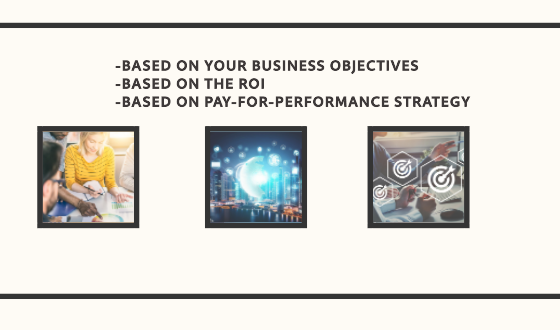
A. Based on your business objectives, the resources at your disposal, and the projected results, establish a reasonable budget for performance marketing efforts. Take into account elements like industry competition and the cost of advertising on various digital platforms.
B. Work together to decide how best to divide your budget across multiple channels and campaigns with the assistance of the performance marketing agency. Prioritize budget allocation for maximum impact by taking into account the potential reach, engagement levels, and conversion rates of various channels.
C. Analyze the ROI of each channel and campaign while continuously monitoring campaign performance. Make informed decisions, reallocate funds to top-performing channels, or change strategy to increase ROI using data-driven insights.
Charging Models in Performance Marketing Agencies
A. Fix Retainer Fee: Instead of pricing based on specific metrics, some agencies work on a retainer basis. You pay a fixed monthly fee for a set scope of services, providing predictable costs over time.
B. Performance-Based Commission: In this model, the agency combines a base fee with a performance-based commission tied to specific key performance indicators (KPIs). The commission is earned when the agency achieves or exceeds the agreed-upon performance targets.
Another approach under performance-based commission is Conversion-Based Commission
Conversion based Commission : Conversion-based commission is a pricing model used in performance marketing, where the commission charged by an agency or marketer is tied directly to the number of conversions achieved for the client. Conversions refer to specific actions that the client considers valuable, such as a completed purchase, a lead form submission, a signup, or any other desired outcome
C. Percentage of Ad Spend: Some agencies charge a percentage of your total ad spend. For instance, if your monthly ad budget is $5,000 and the agency charges 20%, their fee would be $1,000 for that month.
Key Performance Metrics and Tracking Tools
A. Choose the important performance indicators that fit your campaign’s goals. Metrics like impressions, clicks, conversions, revenue, or customer acquisition expenditures may be included in this. By specifying these measures, you can be sure that the agency will concentrate on monitoring and improving the KPIs that are most important to your company.
B. Collaborate with the agency to put in place analytics platforms and tracking technologies that give real-time data on campaign performance. These resources may include marketing automation software, Facebook Pixel, or Google Analytics.
C. Use the information and insights offered by the tracking tools to inform your decisions. Review performance reports frequently, examine patterns, and pinpoint opportunities for improvement. The agency can improve plans, target particular audience segments, and allocate resources wisely for greater campaign performance thanks to data-driven decision-making.
Leveraging Different Performance Marketing Channels
A. To raise your website’s organic search ranks, optimize your website and its content according to google set parameters. In order to do this, high-quality, pertinent content must be created and the optimization process must be followed.
B. Use platforms like Google Ads or social media marketing to create focused PPC campaigns. To boost click-through rates and conversions, create attractive ad copy, pick pertinent keywords, and optimize landing pages.
C. Take advantage of social media channels to interact with your target market and spread brand awareness. To increase exposure and boost conversions, create compelling content, implement targeted ad campaigns, and take into account influencer alliances.
D. Produce worthwhile and captivating material in line with the interests and requirements of your audience. Create a content marketing strategy that uses blog articles, videos, infographics, and other media.
Measuring and Analyzing Campaign Performance
A. Establish a reporting system that offers frequent information on the success of the campaign. This can involve presenting crucial analytics, conversions, and ROI in daily, weekly, or monthly reports. The agency must offer clear, thorough reports that let you evaluate the success of your performance marketing initiatives.
B. Examine campaign performance information to find trends, patterns, and areas that can be improved. To understand the data and develop data-driven campaign modifications, work closely with the agency. Depending on performance data, this can entail changing targeting criteria, improving messaging, or reallocating funds.
C. Use A/B testing to compare different ads, landing sites, or call-to-action buttons to determine which components are most effective. To improve the effectiveness of your campaigns, try new ideas frequently and make changes.
D. Improve upcoming marketing efforts using the knowledge gathered from campaign performance and analytics. Improve your targeting, messaging, and channel choice using the knowledge you’ve gained from past efforts for better outcomes in future campaigns.
A successful engagement with a performance marketing agency must also include collaboration and communication. Businesses should schedule regular meetings, use email correspondence, or make use of project management technologies to create clear communication channels.
Open channels of communication encourage cooperation and agreement on the goals and developments of campaigns. Collaborative strategy development sessions draw on the agency’s knowledge and creative thinking to produce plans that are more successful.
Continuous improvement is ensured by asking for comments and conducting evaluations on a regular basis. Businesses can get the most out of their relationship with a performance marketing firm and meet their marketing goals by putting teamwork and communication first.
Conclusion
Performance marketing offers businesses the opportunity to achieve measurable results and maximize their return on investment in the highly competitive digital landscape.
By following the principles of actionable metrics, targeted audience segmentation, and performance-based compensation, businesses can select the right performance marketing agency that aligns with their goals and objectives.
Developing a comprehensive performance marketing strategy, allocating budgets effectively, and leveraging different marketing channels further enhance the chances of success. Measuring campaign performance through key metrics and tracking tools enables data-driven decision-making and continuous optimization.
Finally, collaboration and communication with the performance marketing agency foster a strong partnership, allowing businesses to dominate the digital space and achieve their marketing objectives.
For businesses looking to rule the digital sphere in Dubai’s fiercely competitive digital industry, collaborating with the best performance marketing agency is essential. With over thirteen years of experience in digital marketing, Iffort has established its expertise and served clients not only in the UAE but also in various other countries. We encourage you to include Iffort in your considerations as you embark on finding the perfect agency for your business.








































